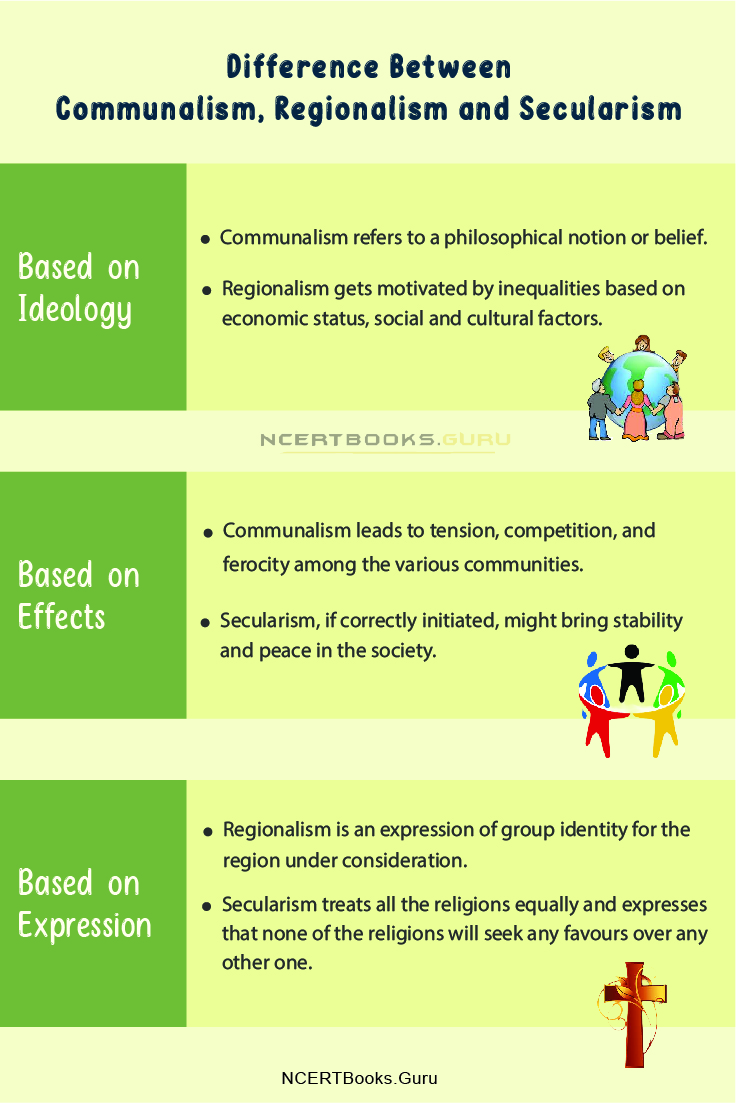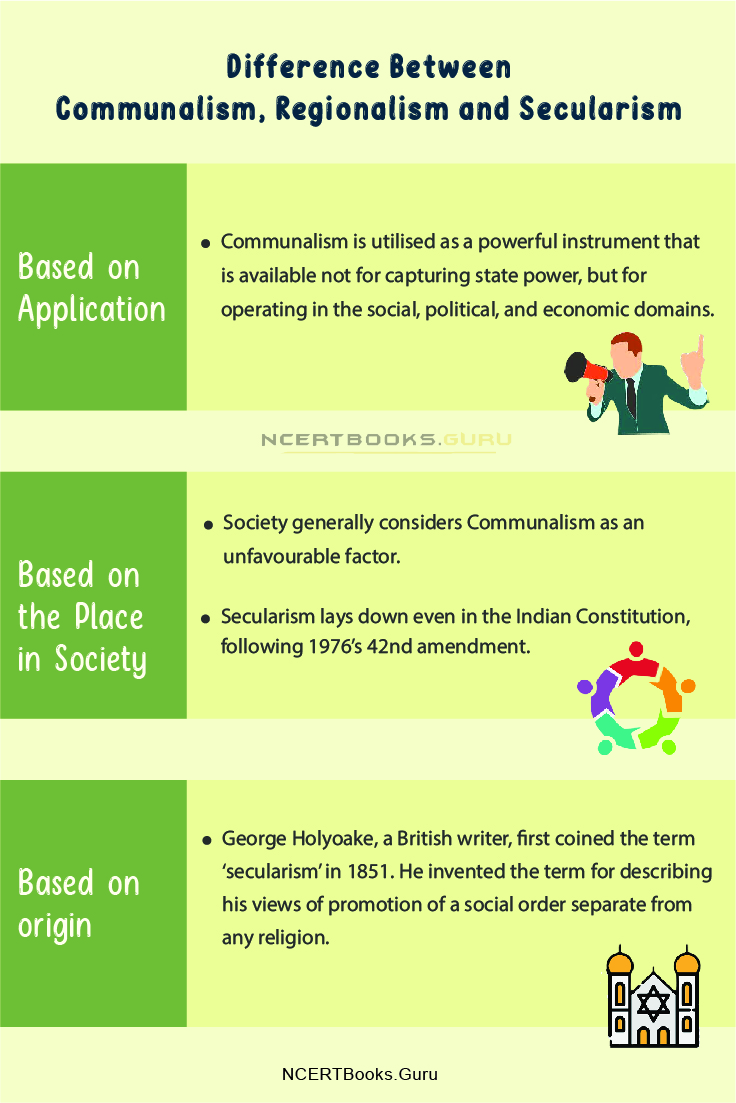Communalism, regionalism, and Secularism are three different, yet very important political ideologies. All of them have their belief systems and varying modes of Application. All three are effective in shaping the fundamental growth factor of a country. In India, all three factors play a vital role in assuring peace in society. Additionally, for the development of a nation as a whole, they all play equally important roles.
Communalism stands for prioritising affiliations towards a person’s separate ethnic group instead of the entire society.
Regionalism stands for the political ideologies that focus on developing a social or political system based on one or many regions.
Secularism is the principle stating that all the state affairs are distinct from religious issues and beliefs, and vice versa.
You can also find differences between articles on various topics that you need to know. Just tap on the quick link available and get to know the basic differences between them.
What is the Difference between Communalism, Regionalism, and Secularism
Communalism, Regionalism, and Secularism are three vital aspects of a political system. There are many variations in the beliefs and ideologies of all the three factors, and they are differentiated below based on the stated varying factors:

Based on Ideology:
- Communalism refers to a philosophical notion or belief.
- Regionalism gets motivated by inequalities based on economic status, social and cultural factors.
- Secularism is a belief that any state and religion must never interfere in each other’s affairs.
Based on Effects:
- Communalism leads to tension, competition, and ferocity among the various communities.
- Regionalism threatens the unity and integrity of the nation.
- Secularism, if correctly initiated, might bring stability and peace in the society.
Based on Expression:
- Communalism demonstrates the expression of any community’s superiority and other communities’ intolerance.
- Regionalism is an expression of group identity for the region under consideration.
- Secularism treats all the religions equally and expresses that none of the religions will seek any favours over any other one.

Based on Application:
- Communalism is utilised as a powerful instrument that is available not for capturing state power, but for operating in the social, political, and economic domains.
- Regionalism applies by any religious groups or parties to expand their interest at other regions’ expenses. It is a major drawback of Federalism in India.
- Secularism applies mainly to societies that have people of different cultures and religions. It aims at making the state neutral for the residents of all the religions.
Based on the Place in Society:
- Society generally considers Communalism as an unfavourable factor.
- The lower segment of the entire population denies supporting regionalism. The segment that does not believe the factor does not believe in the country’s upliftment.
- Secularism lays down even in the Indian Constitution, following 1976’s 42nd amendment.
Based on origin:
- Murray Bookchin, a socialist author, coined the term ‘communalism’ in the early 20th century.
- Pointing out the exact origin of the term ‘regionalism’ is a harder act. Still, experts believe that the ancient empires’ imperialistic practices were the earliest manifestations for the concept.
- George Holyoake, a British writer, first coined the term ‘secularism’ in 1851. He invented the term for describing his views of promotion of a social order separate from any religion.
